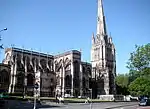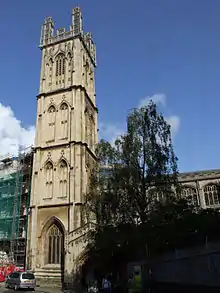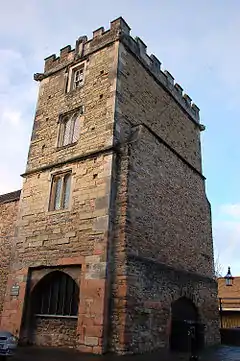Grade I listed buildings in Bristol
There are 100 Grade I listed buildings in Bristol, England according to Bristol City Council.[3] The register includes many structures which for convenience are grouped together in the list below.[4]
.jpg.webp)
In the United Kingdom, the term listed building refers to a building or other structure officially designated as being of special architectural, historical or cultural significance; Grade I structures are those considered to be "buildings of exceptional interest".[5] Listing was begun by a provision in the Town and Country Planning Act 1947. Listing a building imposes severe restrictions on what the owner might wish to change or modify in the structure or its fittings. In England, the authority for listing under the Planning (Listed Buildings and Conservation Areas) Act 1990[6] rests with Historic England, a non-departmental public body sponsored by the Department for Culture, Media and Sport, while local authorities have a responsibility to regulate and enforce the planning regulations.
The oldest Grade I listed buildings in Bristol are religious. St James' Priory was founded in 1129 as a Benedictine priory by Robert, Earl of Gloucester, the illegitimate son of Henry I. The building is on the Historic England Buildings at Risk Register and described as being in very bad condition.[7] The second oldest is The Cathedral Church of the Holy and Undivided Trinity which is more commonly known as Bristol Cathedral and its associated Gatehouse.[8] Founded in 1140, the church became the seat of the bishop and cathedral of the new Diocese of Bristol in 1542. Most of the medieval stonework, particularly the Elder Lady Chapel, is made from limestone taken from quarries around Dundry and Felton with Bath stone being used in other areas.[9] Amongst the other churches included in the list is the 12th century St Mary Redcliffe which is the tallest building in Bristol. The church was described by Queen Elizabeth I as "the fairest, goodliest, and most famous parish church in England."[1][2] The New Room was built in 1739 by John Wesley and is the oldest Methodist chapel in the world.[10]
Secular buildings include The Red Lodge which was built in 1580 for John Yonge as a lodge for a Great House, which once stood on the site of the present Colston Hall. It was subsequently added to in Georgian times and restored in the early 20th century. It has had several uses in its past, including hosting the country's first girls' reform school in 1854. It is open to the public as a branch of Bristol City Museum and Art Gallery.[11] Other manor houses include the 18th century Kings Weston House[12] and Goldney Hall where the highly decorated Grotto dates from 1739.[13] Commercial buildings such as paired Exchange[14] and Old Post Office[15] from the 1740s are also included in the list. Residential buildings in the Georgian Portland Square[16][17][18][19][20][21] and the complex of small cottages around a green at Blaise Hamlet.[22][23][24][25][26][27][28][29][30] Blaise Hamlet was built around 1811 for retired employees of Quaker banker and philanthropist John Scandrett Harford, who owned Blaise Castle House. The 18th century industrial structures of Isambard Kingdom Brunel are represented in the list by the Clifton Suspension Bridge,[31] Avon Bridge[32] and the Bristol Old Station[33] which formed the original Bristol Temple Meads railway station.[34]
Buildings
Notes
- The date given is the date used by Historic England as significant for the initial building or that of an important part in the structure's description.
- Sometimes known as OSGB36, the grid reference is based on the British national grid reference system used by the Ordnance Survey.
- The "List Entry Number" is a unique number assigned to each listed building and scheduled monument by Historic England.
- The Black Castle Public House is also known as Arno's Castle.
- Bristol Cathedral is also known as the Cathedral Church of St Augustine.
- The entry includes the Theatre Royal and Coopers Hall, currently the home of the Bristol Old Vic Theatre Company.
- The Church of St John the Baptist is also known as St John's on the Wall.
- The entry for Colstons Almshouses includes the front wall and gates.
- The Exchange is also known as the Corn Exchange. The entry also includes the railings and Nails.
- The entry for Kings Weston House includes the Loggia, Brewhouse and Echo.
- St Mark's Church is also known as the Lord Mayor's Chapel.
References
- Burrough, THB (1970). Bristol. London: Studio Vista. ISBN 0-289-79804-3.
- Little, Bryan (1967). The City and County of Bristol. Wakefield: S. R. Publishers. ISBN 0-85409-512-8.
- "Listed buildings register: Listed buildings". Bristol City Council. Archived from the original on 22 August 2009. Retrieved 24 July 2009.
- "List of Grade I Listed Buildings in Bristol" (PDF). Bristol City Council. 18 October 2007. Retrieved 29 September 2017.
- "What is a listed building?". Manchester City Council. Archived from the original on 4 January 2008. Retrieved 8 December 2007.
- "Planning (Listed Buildings and Conservation Areas) Act 1990 (c. 9)". Ministry of Justice. Archived from the original on 18 April 2010. Retrieved 17 December 2007.
- "St James Priory, Whitson Street". English Heritage Buildings at Risk Register. Retrieved 26 October 2007.
- "The Great Gatehouse". historicengland.org.uk. Retrieved 16 March 2007.
- "Cathedral Church of St Augustine, including Chapter House and cloisters". historicengland.org.uk. Retrieved 16 March 2007.
- "Wesley's gateway to the West". Methodist Heritage. Archived from the original on 13 March 2011. Retrieved 31 March 2007.
- "Bristol's Red Lodge". About Britain.com. Archived from the original on 3 April 2007. Retrieved 11 March 2007.
- "Kings Weston House". historicengland.org.uk. Retrieved 16 March 2007.
- "Grotto approximately 85 metres south of Goldney House". historicengland.org.uk. Retrieved 16 March 2007.
- "The Exchange". historicengland.org.uk. Retrieved 16 March 2007.
- "No.48 Old Post Office". historicengland.org.uk. Retrieved 16 March 2007.
- "Nos.1–6 (Consecutive) and attached area railings". historicengland.org.uk. Retrieved 16 March 2007.
- "Nos.14–17 (Consecutive) and attached area railings". historicengland.org.uk. Retrieved 16 March 2007.
- "Nos.18–21 (Consecutive) and attached area railings". historicengland.org.uk. Retrieved 16 March 2007.
- "Nos.22–28 (Consecutive) and attached area railings". historicengland.org.uk. Retrieved 16 March 2007.
- "Nos.31–34 (Consecutive) and attached area railings". historicengland.org.uk. Retrieved 16 March 2007.
- "Nos.7–13 (Consecutive) and attached area railings". historicengland.org.uk. Retrieved 16 March 2007.
- "Dial Cottage". historicengland.org.uk. Retrieved 14 March 2007.
- "Diamond Cottage". historicengland.org.uk. Retrieved 14 March 2007.
- "Double Cottage". historicengland.org.uk. Retrieved 14 March 2007.
- "Dutch Cottage". historicengland.org.uk. Retrieved 14 March 2007.
- "Oak Cottage". historicengland.org.uk. Retrieved 14 March 2007.
- "Rose Cottage". historicengland.org.uk. Retrieved 14 March 2007.
- "Sweetbriar Cottage". historicengland.org.uk. Retrieved 14 March 2007.
- "Vine Cottage". historicengland.org.uk. Retrieved 14 March 2007.
- "Sundial to the middle of the green at Blaise Hamlet". historicengland.org.uk. Retrieved 16 March 2007.
- "Clifton Suspension Bridge". historicengland.org.uk. Retrieved 16 March 2007.
- "Avon Bridge". historicengland.org.uk. Retrieved 16 March 2007.
- "Bristol Old Station, Temple Meads". historicengland.org.uk. Retrieved 13 March 2007.
- "Temple Meads Station". historicengland.org.uk. Retrieved 16 March 2007.
- "Black Castle Public House". historicengland.org.uk. Retrieved 16 March 2007.
- Historic England. "Blaise Hamlet, Circular Cottage (1202262)". National Heritage List for England. Retrieved 3 April 2015.
- "Central Library and attached walls and railings". historicengland.org.uk. Retrieved 16 March 2007.
- "The Theatre Royal". historicengland.org.uk. Retrieved 16 March 2007.
- "Church of St John the Baptist and St John's Gate". historicengland.org.uk. Retrieved 16 March 2007.
- "Clifton Hill House". historicengland.org.uk. Retrieved 16 March 2007.
- "Colstons Almshouses". historicengland.org.uk. Retrieved 16 March 2007.
- "Front wall and gates to Colston's Almshouses". historicengland.org.uk. Retrieved 16 March 2007.
- "Equestrian statue of William III". historicengland.org.uk. Retrieved 16 March 2007.
- "Attached basement area railings to The Exchange". historicengland.org.uk. Retrieved 16 March 2007.
- "The Nails". historicengland.org.uk. Retrieved 16 March 2007.
- "Nos.13 and 14 Former Bank of England". historicengland.org.uk. Retrieved 16 March 2007.
- "Church of the Holy Trinity". historicengland.org.uk. Retrieved 16 March 2007.
- "Loggia approximately 50 metres north of Kings Weston House". historicengland.org.uk. Retrieved 16 March 2007.
- "The Brewhouse, Kings Weston House". historicengland.org.uk. Retrieved 16 March 2007.
- "The Echo, approximately 300 metres south-east of Kings Weston House". historicengland.org.uk. Retrieved 16 March 2007.
- "The New Room". historicengland.org.uk. Retrieved 16 March 2007.
- "Quaker meeting house, now registry office". historicengland.org.uk. Retrieved 16 March 2007.
- The Town House in Medieval and Early Modern Bristol, English Heritage, 2014.
- "Red Lodge and attached rubble walls and entrance steps". historicengland.org.uk. Retrieved 16 March 2007.
- "Redland Chapel". historicengland.org.uk. Retrieved 16 March 2007.
- "Royal Fort and attached front step railings". historicengland.org.uk. Retrieved 16 March 2007.
- "Church of St James". historicengland.org.uk. Retrieved 16 March 2007.
- "Church of St Mark, Lord Mayor's Chapel". historicengland.org.uk. Retrieved 16 March 2007.
- "Church of St Mary Redcliffe". historicengland.org.uk. Retrieved 16 March 2007.
- "Church of St Stephen". historicengland.org.uk. Retrieved 16 March 2007.
- "Westbury College and College House". historicengland.org.uk. Retrieved 16 March 2007.
See also
- Buildings and architecture of Bristol
- Grade II* listed buildings in Bristol
- Grade II listed buildings in Bristol
- Category:Grade I listed buildings in Bristol
External links
![]() Media related to Grade I listed buildings in Bristol at Wikimedia Commons
Media related to Grade I listed buildings in Bristol at Wikimedia Commons


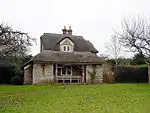
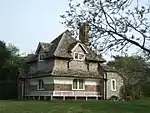
.jpg.webp)
.jpg.webp)
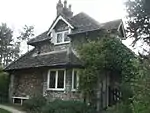


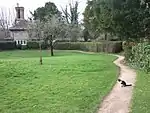
_(geograph_3566723).jpg.webp)
.jpg.webp)
.jpg.webp)
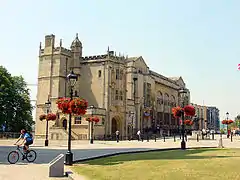
.jpg.webp)
.jpg.webp)
.jpg.webp)
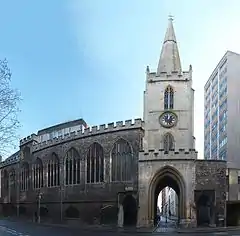
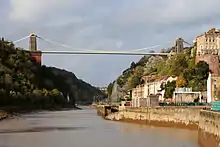
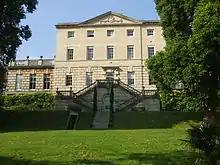

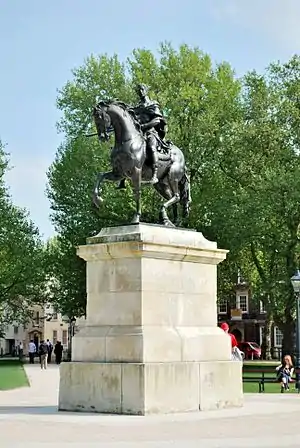
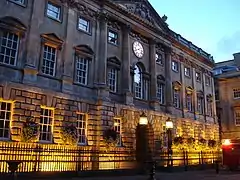
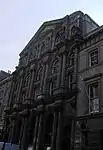
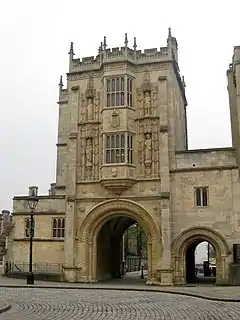

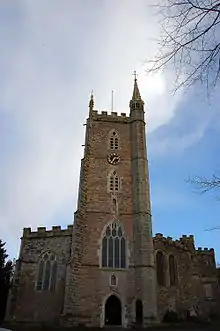
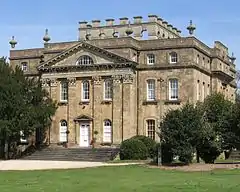
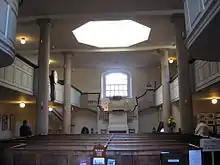
.jpg.webp)


.jpg.webp)
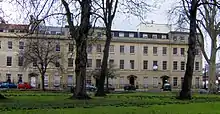
.jpg.webp)
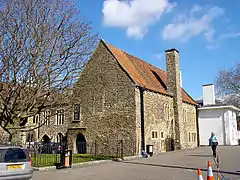
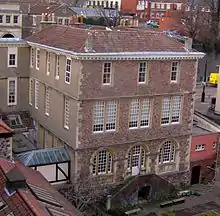
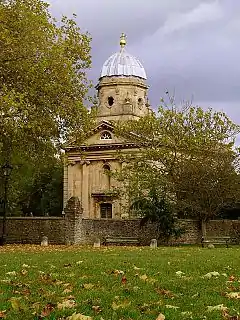

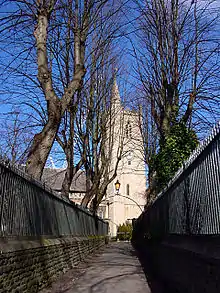
.jpg.webp)
